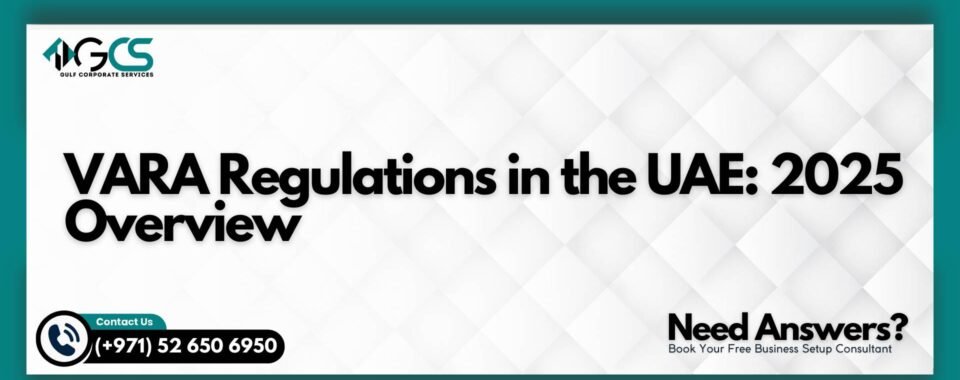
As digital assets and blockchain technologies continue to evolve, the UAE has taken a forward-thinking stance in regulating virtual assets. At the center of this innovation is VARA – the Virtual Assets Regulatory Authority. Established to create a secure and transparent framework for digital asset activities, VARA regulations in the UAE are among the most advanced and structured systems in the world.
In this 2025 overview, we break down everything you need to know about VARA regulations, what they mean for investors, crypto startups, exchanges, and how to remain compliant in one of the most future-ready countries globally.
What is VARA? Understanding Its Role in the UAE
VARA (Virtual Assets Regulatory Authority) was established by the government of Dubai to oversee and regulate virtual asset activities, ensuring that businesses involved in the crypto and blockchain space operate legally, transparently, and securely.
The purpose of VARA is to:
- Provide a regulatory framework for all virtual asset-related services
- Prevent money laundering, fraud, and illicit financing
- Encourage the safe growth of the digital economy
- Build trust among users, businesses, and investors in the virtual assets space
VARA operates independently but works closely with key UAE bodies like the Dubai Financial Services Authority (DFSA), Central Bank of the UAE, and Dubai World Trade Centre. In 2025, it remains a pivotal force in shaping the region’s digital asset ecosystem.
Why VARA Is Important in 2025
The virtual asset landscape is fast-changing. Without a strong regulator, it can become a grey area full of risks. With VARA regulations, the UAE has positioned itself as a global hub for blockchain and crypto innovation, offering clarity and legal recognition to digital asset businesses.
If you’re an investor, exchange operator, NFT platform, or token issuer—understanding VARA compliance is crucial for long-term growth and access to the UAE market.
Key Definitions under VARA Regulations
Before we dive into the detailed rules, here are some important terms used by VARA:
- Virtual Assets (VA) – Any digital representation of value that can be traded or transferred, such as cryptocurrencies, tokens, or NFTs.
- Virtual Asset Service Provider (VASP) – Any business or individual offering services involving virtual assets.
- Custodian – A company responsible for safely storing client digital assets.
- Token Issuer – A business that launches or distributes virtual tokens or coins.
- Exchange – A platform facilitating the buying, selling, or trading of virtual assets.
These definitions help determine what license or regulatory scope applies to your business under VARA laws in the UAE.
Types of Activities Regulated by VARA
VARA monitors and licenses a wide range of digital asset activities. In 2025, the following services are regulated:
Virtual Asset Exchange Services
This includes centralized or decentralized platforms that allow users to:
- Buy or sell digital currencies
- Swap one token for another
- Trade digital assets against fiat currencies
Custodial Services
Businesses that store private keys or offer vault-style protection for crypto funds must obtain custodian licenses and follow strict safety protocols.
Broker-Dealer Services
Platforms or individuals facilitating VA transactions on behalf of others must register with VARA as brokers or dealers.
Virtual Asset Management Services
This covers investment firms managing portfolios made up of digital assets like stablecoins, tokens, and security tokens.
Advisory Services
Entities offering advice on:
- VA investments
- ICO participation
- NFT projects
Must be licensed to offer such consultation legally in Dubai.
Issuance of Tokens or Coins
If you’re launching an ICO (Initial Coin Offering) or any new digital token, you must submit an application and whitepaper for approval under VARA.
Licensing Framework under VARA
All virtual asset service providers must register with VARA before operating in Dubai. The licensing process is mandatory and includes the following stages:
Initial Assessment
Submit a detailed business plan, financial projections, compliance model, and company documents.
Pre-Approval
If your business meets initial standards, you’ll receive provisional clearance to prepare your compliance systems and tech stack.
Full Licensing
Upon system audits, staff verifications, and successful setup of AML/KYC controls, a full license is issued.
Ongoing Compliance Requirements
Once licensed, VARA expects continued compliance with several legal and operational obligations. These include:
Anti-Money Laundering (AML) Controls
You must implement:
- KYC (Know Your Customer) verification
- Transaction monitoring tools
- Regular AML risk assessments
- Internal and external audit procedures
Cybersecurity and Data Privacy
VARA mandates:
- Regular security audits
- End-to-end encryption for customer data
- Cold storage for the majority of customer funds
Reporting Obligations
VASP entities must submit:
- Quarterly financial reports
- Suspicious activity reports (SARs)
- Annual compliance review filings
Consumer Protection Measures
Businesses must:
- Provide transparent terms of service
- Ensure user fund segregation
- Implement clear refund and dispute policies
Failure to comply with any of these leads to license suspension, hefty fines, or even blacklisting.
Who Needs to Register with VARA?
If you’re operating in Dubai and engage in any of the following, you need to register with VARA in 2025:
- Cryptocurrency exchanges
- Digital wallet providers
- NFT marketplaces
- Token launch platforms
- Crypto payment processors
- Virtual asset investment firms
Even freelancers offering advisory services on crypto assets are required to apply if they operate commercially.
VARA Regulations for NFT Projects
Non-Fungible Tokens (NFTs) are a growing sector in Dubai. However, many assume they fall outside the regulatory net.
In 2025, NFT platforms and creators offering commercial or trading functionality must:
- Register with VARA if NFTs are sold for profit
- Declare marketplace earnings
- Comply with consumer rights and content ownership standards
This includes NFT artists, PFP project creators, and tokenized art platforms.
Penalties for Non-Compliance with VARA Regulations
VARA has introduced strict penalties for non-compliant entities, including:
- Fines ranging from AED 50,000 to AED 500,000
- Temporary or permanent license cancellation
- Freezing of digital assets
- Public naming and shaming
- Blacklisting from UAE markets
These penalties highlight how serious the UAE is about creating a secure and credible virtual asset sector.
VARA Sandbox Model for Innovation
One of the most exciting features in VARA’s ecosystem is the Innovation Sandbox. This allows startups to:
- Test new blockchain solutions
- Launch tokens under supervised environments
- Run pilot versions of DeFi platforms
It’s an ideal route for new crypto companies looking to prove viability before full market launch.
Integration with Other UAE Laws
VARA does not operate in isolation. It aligns with:
- UAE Central Bank’s digital asset policies
- Ministry of Economy regulations
- Data Protection Law (DPL)
- Cybercrime laws protecting users from hacking or online fraud
Any business regulated by VARA must also comply with these frameworks.
Benefits of Registering with VARA
Businesses that operate under VARA receive a number of advantages:
- Legal clarity and operational legitimacy
- Ability to work with regulated banks and institutions
- Access to investor confidence
- International reputation as a regulated provider
- Inclusion in government and institutional partnerships
This makes Dubai one of the most crypto-friendly jurisdictions globally.
VARA and Free Zones in Dubai
In Dubai, free zones like DMCC, DWTC, and DIFC work closely with VARA. Businesses can set up in these zones with:
- Full foreign ownership
- 0% corporate tax (up to the federal threshold)
- Access to office space and incubators
- Integration with global crypto exchanges
Free zone crypto licenses are issued in partnership with VARA or as per their framework.
Conclusion
The VARA regulations in the UAE, as of 2025, set the stage for a transparent, scalable, and secure virtual asset ecosystem. From crypto exchanges and token platforms to NFT creators and DeFi innovators, VARA is providing a foundation for businesses to operate legally while protecting users and investors.
For entrepreneurs and investors looking to enter Dubai’s blockchain economy, understanding and complying with VARA laws is non-negotiable. It ensures not just compliance but credibility in a fast-changing digital world.
If you’re considering launching a crypto business, token platform, or virtual asset exchange, working with an experienced consultancy for Business Setup in Dubai can help you navigate licensing, registration, and compliance—so you can focus on growing in one of the world’s most visionary markets.
Frequently Asked Questions (FAQs)
What is VARA in Dubai?
VARA stands for Virtual Assets Regulatory Authority. It is Dubai’s official body regulating virtual asset activities, including crypto, NFTs, and blockchain-based services.
Do I need a VARA license to launch a crypto exchange in Dubai?
Yes. Anyone operating a virtual asset exchange in Dubai must register and obtain a license through VARA before offering services to the public.
Are NFT projects regulated by VARA in 2025?
Yes. Commercial NFT platforms, especially those with trading or investment functionality, must comply with VARA licensing and consumer protection rules.
What are the penalties for not registering with VARA?
Penalties include heavy fines, license suspension, asset freezing, and possible blacklisting from the UAE’s financial and commercial sectors.
How long does it take to get licensed by VARA?
Licensing time varies by activity. On average, expect 3–8 weeks depending on your business model, AML systems, and tech setup.








